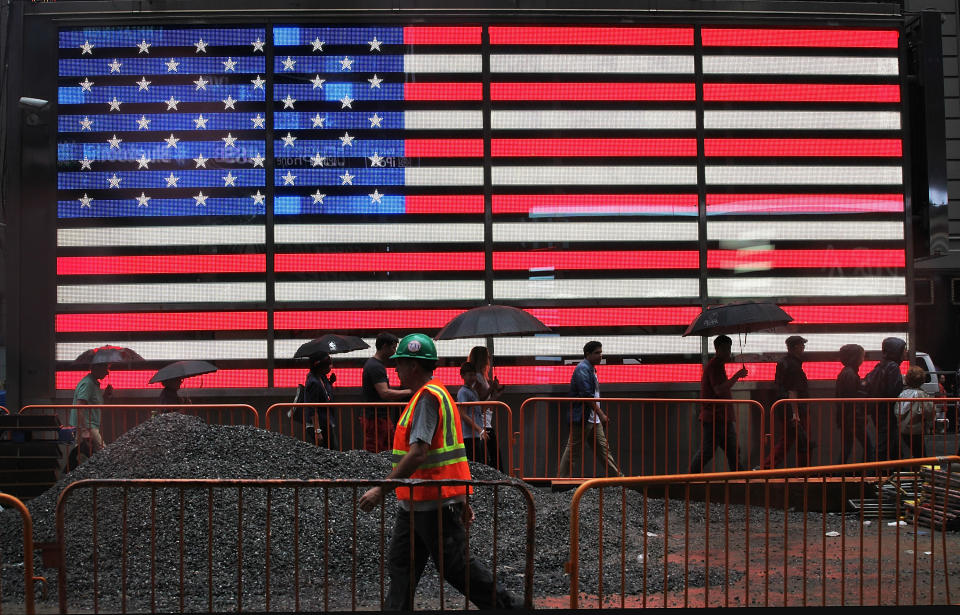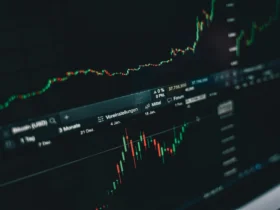The U.S. labor market added more jobs than expected in June, while the unemployment rate rose unexpectedly, hitting its highest level since November 2021, another sign that the labor market continues to cool.
Data from the Bureau of Labor Statistics released Friday showed the US economy added 206,000 nonfarm payroll jobs in June, more than the 190,000 economists expected.
The unemployment rate rose to 4.1%, up from 4% last month and the highest reading in almost three years. June’s job additions were a slight drop from May, which saw job gains revised up to 218,000 on Friday from the 272,000 initially reported last month. Total revisions for April and May showed the US economy added 111,000 fewer jobs than initially reported.
“The June jobs report showed more signs of cooling in the labor market, with job growth including weaker-than-expected revisions, the unemployment rate rising and income growth slowing,” Oxford’s chief economist wrote Economics, Nancy Vanden Houten in a note to clients.
The S&P 500 (^GSPC) and Nasdaq Composite (^IXIC) rose after the report, adding to gains after the market traded at record highs earlier this week amid a slew of softer-than-expected economic data, including readings on inflation the United States is returning to a “disinflationary path,” according to Federal Reserve Chairman Jerome Powell.
Read more: How does the labor market affect inflation?
Before Friday’s jobs report, investors were pricing in two interest rate cuts this year, with the first most likely to come in September.
According to the CME FedWatch Tool, investors are pricing in a nearly 75% chance the Fed will cut rates in September. Last month, Fed forecasts suggested a rate cut would be appropriate this year.
For some, Friday’s report further strengthens the case for the Federal Reserve to cut interest rates in the near future.
“Today’s employment report should bolster expectations for a September rate cut,” Renaissance Macro chief economist Neil Dutta wrote in a note to clients. “Economic conditions are cooling and that makes the tradeoffs different for the Fed… Powell should use July to set a September cut.”
With jobless claims rising and the jobless rate at its highest level in more than two years while inflation is falling, economists believe the Fed is walking an increasingly fine line by keeping interest rates at levels their highest in more than two decades.
“Given the apparent cooling over the past year in the labor market, we see further weakening of the labor market becoming more worrisome and less welcome by the Fed,” Wells Fargo senior economist Sarah House wrote in a note to clients on Tuesday.
The story continues
Data earlier this week also showed signs of a slowdown in the labor market.
On Wednesday, the ADP Research Institute’s National Employment Report showed that 150,000 private sector jobs were added in June, a slowdown from May’s 157,000 job additions.
Meanwhile, data from the Labor Department showed that about 1.86 million continuous jobless claims were filed in the week ending June 29, up from 1.83 million a week earlier. This marked the ninth consecutive week where ongoing claims have increased.
Elsewhere in Friday’s report, wage growth, a key gauge of inflationary pressures, slowed to 3.9% year-on-year. On a monthly basis, wages rose 0.3%, down from last month’s 0.4% increase.
Meanwhile, the labor force participation rate climbed to 62.6% from 62.5% a month ago.
The biggest job gains in Friday’s report were in government employment, which added 70,000 jobs in June. At the same time, health care employment added 49,000 jobs, lower than the average monthly gain of 64,000 over the past twelve months.

Josh Schafer is a reporter for Yahoo Finance. Follow him to X @_joshschafer.
Image Source : finance.yahoo.com







Leave a Reply